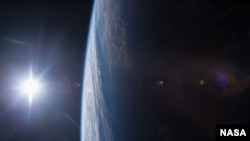On April 22, the United States observes Earth Day, an opportunity to reflect on the impact of humans on the earth, and to consider how we as individuals can ensure that our impact is positive.
The first Earth Day was planned as a Teach-in, a day to inform about environmental issues. Back in the late 1960s, people in the United States were increasingly worried about the deterioration of the environment, the lack of regulation of pollution or the political will to do anything about it.
One of them was Earth Day founder, United States Senator Gaylord Nelson, an environmental activist who was outraged by lack of political response to the gross environmental degradation perpetrated around the country. He said that he was “convinced that all we need to do to bring an overwhelming insistence of the new generation that we stem the tide of environmental disaster is to present the facts clearly and dramatically.”
Over 20 million people turned up for Senator Nelson’s first Earth Day on April 22, 1970. And from then on, the movement grew spontaneously, creating its own momentum with no central directorate.
Today, Earth Day is considered by many to be the birth of the modern environmental movement. It resulted in the establishment of the U.S. Environmental Protection Agency, and passage of the Clean Air Act, the Clean Water Act and the Endangered Species Act.
Back in 1970, the focus was on oil spills, industrial polluters, toxic dumps, the loss of wilderness, and the extinction of wildlife. Today, the main concern has to do with climate change.
There is little doubt that human activity interferes with the earth’s climate systems.An Intergovernmental Panel on Climate Change, which met in Yokohama, Japan last year, issued a report stating that change has already begun to affect crop yields and was driving recent killer heat-waves and droughts, disastrous floods, and weather extremes.
“Unless we act dramatically and quickly, science tells us our climate and our way of life are literally in jeopardy,” said Secretary of State John Kerry. “No single country causes climate change, and no one country can stop it. But we need to match the urgency of our response with the scale of the science.”
“The clock is ticking.”
















